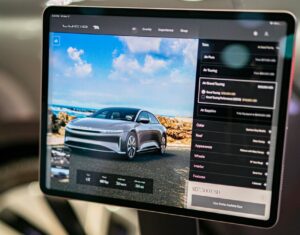
Home / EV Charging News / Electric Car Subscription Models for Rural Areas: Empowering Mobility Beyond Urban Centers
In the quest for sustainable transportation, electric vehicles (EVs) have become a focal point. However, the adoption of EVs in rural and less densely populated areas poses unique challenges. This article delves into the potential of subscription-based models to make electric cars a viable and accessible option for residents in rural landscapes.
Subscription models, a departure from traditional car ownership, offer reduced upfront costs, maintenance coverage, and flexibility. These advantages are particularly relevant for rural residents who may have diverse transportation needs, from daily commuting to occasional long-distance travel.
Customized subscription plans that account for varied usage patterns become essential in rural settings. Considering the limited charging infrastructure, flexible plans should accommodate the different travel needs of rural residents.
Educating subscribers about EV range capabilities and providing robust support services can alleviate range anxiety. Strategic placement of charging stations along common routes is crucial, helping to build confidence in EV usage.
Engaging local businesses for partnerships in establishing charging infrastructure and promoting electric car adoption can be a key strategy. Community outreach programs play a vital role in educating residents about the benefits of EVs and subscription models.
Conducting a total cost of ownership analysis is crucial to demonstrate the economic viability of electric car subscriptions. Additionally, exploring potential government incentives can make these subscriptions more financially attractive for rural residents.
Examining instances where electric car subscription models have succeeded in rural settings helps illustrate their positive impact. These cases showcase how such models can benefit individuals and the environment alike.
Exploring ongoing and future technological advancements that could enhance the feasibility and appeal of electric car subscriptions is crucial. Understanding the broader environmental and societal benefits can further promote EV adoption in rural regions.
As we envision a greener future for rural areas, the role of electric car subscription models takes center stage. The evolution of transportation in these regions goes beyond providing a means of travel; it becomes a catalyst for environmental stewardship and community development.
In adapting subscription models to rural needs, flexibility emerges as a cornerstone. Recognizing the diverse and sometimes unpredictable transportation requirements of rural residents, subscription plans should offer versatility in usage patterns. This adaptability is essential for catering to daily commuting, occasional long-distance journeys, and the intermittent demands of rural life.
Addressing range anxiety, a common concern in rural EV adoption, involves more than just technological solutions. It necessitates a holistic approach that combines education, support services, and strategic infrastructure development. By fostering an understanding of electric vehicle capabilities and strategically placing charging stations along commonly traversed routes, the impediments to embracing EVs in rural landscapes can be systematically dismantled.
Collaboration with local communities becomes a linchpin in this transformation. By engaging with local businesses, forging partnerships, and establishing community outreach programs, the transition to electric car subscriptions gains momentum. These collaborations not only facilitate the infrastructure needed for widespread EV adoption but also empower local economies.
Economic considerations play a pivotal role in the success of subscription models in rural areas. Conducting a thorough analysis of the total cost of ownership becomes a persuasive tool in demonstrating the economic viability of electric car subscriptions. Furthermore, exploring government incentives adds a layer of financial attractiveness that can tip the scales in favor of sustainable and eco-conscious mobility.
Drawing inspiration from successful case studies, we see how electric car subscription models can thrive in rural settings. These success stories underscore the positive impact on individuals and the environment, showcasing a blueprint for sustainable mobility beyond urban boundaries.
Looking forward, technological advancements will continue to shape the landscape of rural mobility. Embracing these innovations enhances the feasibility and appeal of electric car subscriptions. Moreover, understanding the broader environmental and societal benefits reinforces the significance of encouraging electric vehicle adoption in rural regions.
In conclusion, electric car subscription models are not merely a mode of transport; they represent a paradigm shift towards sustainable living in rural areas. By intertwining flexibility, education, collaboration, and economic sensibility, these models pave the way for a greener, more connected, and environmentally conscious rural future.
Electric car subscription models have the potential to revolutionize rural mobility, offering a pathway to sustainable transportation in areas traditionally underserved by EVs. Through strategic planning, community engagement, and customized offerings, these models can become a driving force in reducing emissions and promoting eco-friendly living beyond urban centers.
$4,150.00 Original price was: $4,150.00.$3,990.00Current price is: $3,990.00.
$10,690.00 – $11,390.00

Your Power Management Partner for Over 25 Years Future Generations Depend on Our Decisions Today ™
2024 © All rights reserved by CyberSwitching